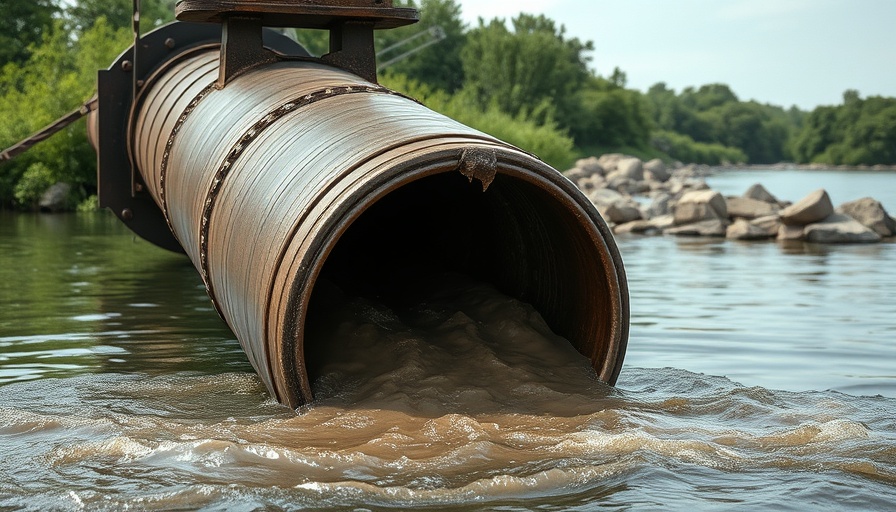
Residents Unite in Demand for Clean Water
In Kings Mountain, North Carolina, a growing number of residents are raising alarms about the quality of their tap water, which they describe as "foul-tasting" and in some cases, even "undrinkable." This collective outcry is not just about ratings, but a personal concern for many who must use this water for their daily needs. Katherine Torres, a local resident, has taken the lead in voicing these frustrations, detailing how the issues go beyond taste to affect her basic routines: showering, cooking, and drinking.
Understanding the Source of Contamination
The city officials attribute these complaints to "higher organic levels" stemming from nearby Moss Lake, despite reassurance that the water is still within the safe drinking standards. Nonetheless, residents are feeling the impact daily, calling for transparency in testing and actions to clean the water. As one father expressed, "It’s not just about taste. It’s a question of health. We need to know exactly what we're drinking, especially when it affects our families." This situation raises broader concerns about water quality in urban areas—are municipalities prepared to safeguard our most vital resource?
The Importance of Water Quality in Public Health
Access to clean water is quintessential to public health and wellness. According to the World Health Organization (WHO), poor water quality can lead to numerous health issues across communities, including gastrointestinal diseases and other long-term ailments. Residents of Kings Mountain are calling for swift action not only to restore their tap water quality but also to prevent future occurrences. Clean water is a fundamental right, and it plays a critical role in health, especially for vulnerable populations such as children and the elderly.
A Community Divided: Perspectives on Government Accountability
This incident has sparked a debate regarding the accountability of local governments in maintaining water safety. While some residents are frustrated and feel ignored by city officials, others want to understand the science behind the contamination. They fear that any lack of action could lead to broader public health crises in the future. With calls for a petition, local activists are pressuring city officials to take immediate action, including comprehensive water testing and remediation efforts.
Community Voices: Frustration and Solutions
Local residents have taken to community meetings, raising awareness on social media, and seeking expert opinions to find potential solutions. Suggestions include alternative water sourcing, investments in filtration systems, and in-depth educational programs about water safety. Community engagement is essential in addressing such public health crises, and grassroots movements have begun to form, emphasizing that the problem goes beyond personal discomfort—this is a matter of public accountability.
What Could Change if Action is Taken?
If the Kings Mountain city officials address residents' concerns proactively, it could promote trust and reassurance among the community. Offering reimbursements, as demanded by residents, could alleviate immediate financial worries and also set a precedent for future accountability. Moreover, enhanced water quality can bolster community well-being, attract new families, and ultimately, uplift the local economy.
In conclusion, as the citizens of Kings Mountain push for action, it’s crucial to recognize the implications this situation holds—not only for their community but for similar municipalities across the nation. Clean water is something that every person deserves to access safely. As they seek answers, it serves as a vital reminder of the intersection of health, government accountability, and community well-being.
 Add Row
Add Row  Add
Add 




Write A Comment